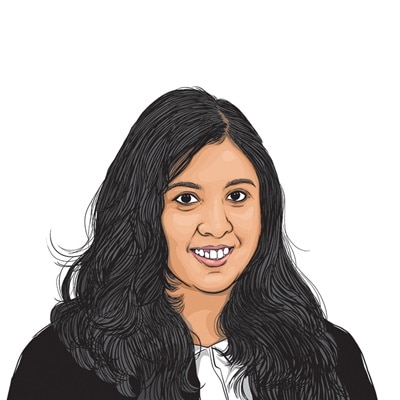Opinion The City & I: Kolkata teaches you who you are without ceremony
Even as a child you are treated as an adult. You speak in sentences borrowed from Tagore and are encouraged to take part in a multitude of activities. You learn about politics, history, and ideas that, in the rest of India, are often considered too complex for children
I grew up in Kolkata knowing I would leave one day. It was not spoken aloud. It was in the way my father spoke of opportunities in Delhi, my aunt’s letters from London, the cousins who stopped coming home for Durga Pujo. Departure was folded into life like the monsoon folds rain into gutters or the tram folds metal into its slow, inevitable arc across the city.
I remember mornings during Durga Pujo. The streets smelled of incense, fried food, and wet earth after early rains. Pandals rose like temporary cities, bright with lights and murals, and crowds moved through them with noisy reverence. Children ran between stalls, their laughter mixing with the rhythmic beats of dhaks. I remember the women, walking with elegance, draped in saris that were nothing short of artistry. The folds of their fabric seemed to carry the city itself, embroidered with the pride and history of generations.
The city teaches you who you are without ceremony. Even as a child you are treated as an adult. You speak in sentences borrowed from Tagore and are encouraged to take part in a multitude of activities — painting, singing, dancing, chess. You learn about politics, history, and ideas that, in the rest of India, are often considered too complex for children. You read books meant for grown-ups and absorb them as if they were part of your daily air. You learn to value words.
You learn about freedom in ways that shape you quietly but profoundly. Women in Kolkata are expected to think, speak, and pursue education with seriousness. My grandmother insisted on schooling for her daughters before anything else, believing that knowledge could not be sacrificed. In a photograph from her days at Presidency College, she stands in a sari that is chic yet simple, her expression composed, her posture confident, as if she already knew that everything was possible. That promise has echoed across generations in Bengal. West Bengal today has the highest number of female IAS officers in India.
Nationally, women make up about 21 per cent of all IAS officers, but in West Bengal nearly half the cadre is women, a rate far higher than most states. Here women do not simply have the ability to exist, but the expectation that you will shape your own path, and the city reinforces it firmly in classrooms and libraries and in homes.
Kolkata is also a city that invites complaints. The traffic is unending, the bureaucracy exhausting. The monsoon floods streets, leaving entire neighbourhoods marooned. The air is heavy with humidity and smoke, jobs are scarce, salaries lower and ambitions often forced to travel elsewhere. People joke that the city resists change, that its clock runs slower, that nostalgia weighs more than progress. These are real problems, and one can acknowledge them without excuse. Yet even knowing all this, you love the city as you might love someone whose stubbornness and neurosis are inseparable from who they are.
Kolkata stays with you. It is in the cadence of your Bengali, the way you dress, the instinct to linger at a bookstall. It is in the restless curiosity for conversation, the hunger for fish, the longing for a monsoon that smells like earth and heat. It is in the way women move through the streets, smoking or laughing, carrying groceries or books, balancing tradition and modernity as naturally as the city balances chaos and poetry.
Leaving Kolkata is not sorrowful entirely. You know it will stay inside you, wherever you go. Loving Kolkata is about recognition, not just of the city, but of yourself as it has been formed by its streets, its sounds, its educational institutions. The city teaches you to see, to taste, to argue, to feel, and to move through the world with a certain confidence. It allows you to leave and still claims you as its own. The folds of its fabric, the aroma of its spices, the cadence of its speech, they are part of who you have become.
I carry it. Not merely as a city, but as a measure of life. Not as a place that exists around me, but as a presence that lives within me. Without Kolkata, I would be someone entirely different; leaving has not diminished it, it has become part of who I am. That, in itself, is enough.
The writer is consultant, Aon






